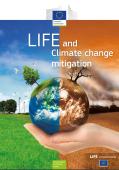This report is among the first publication to provide concrete policy, finance and technology best practice guidance on addressing the heating and cooling sectors in cities through energy-efficiency improvements and the integration of renewable energy technology. It provides a glimpse into what integration and systems thinking look like in practice when addressing challenges in the energy, transport, buildings and industry sectors. The report surveyed low-carbon cities worldwide to identify the key factors underlying their success in scaling up energy efficiency and renewable energy, as well as in attaining targets for zero or low greenhouse gas emissions. More than thirty case studies are presented in the report. District energy systems (DES) emerged as a best practice approach for providing a local, affordable and sustainable energy supply, improve energy efficiency and support energy access efforts. They represented a significant opportunity for countries and cities around the world to move towards climate-resilient, resource-efficient and low-carbon pathways.

Green growth and transport combines several different concepts that are central to sustainable mobility, including sustainable economic activity, reduced environmental impact and sustained growth in high quality jobs. It attempts to balance the importance of economic growth, with environmental damage and social priorities through assessing positive actions that can be taken by a wide variety of public and private stakeholders. It has arisen out of the concern over the use of non-renewable resources in transport, increasing emissions of carbon and other pollutants, and the expected levels of growth in mobility over the next 40 years. But it also acknowledges the importance of transport to the economy, and its role in helping to create jobs, improving levels of productivity and output, and in promoting agglomeration benefits. This means that transport should be efficient, but at the same time make less demand on the environment through less use of resources, through recycling and reuse of materials, and through embracing a life cycle perspective.
Korea Environment Institute (KEI)’s Global Strategy Center has published Greenable, since 2012, to share global environmental issues and its related research conducted in KEI. This volume (Volume 2, 2014) helps advance knowledge on the measurement of progress for sustainable development. The articles in this volume include: Guidelines for the Development of Green Economy Indicators in Developing Countries; Case Studies for the Development and Use of Green Economy Indicators in Developing Countries; Korea's Sustainable Development Indicators: Characteristics and Usage; and Korea Environment Institute’s Research Projects on the Development of Indicators for Sustainable Development.

